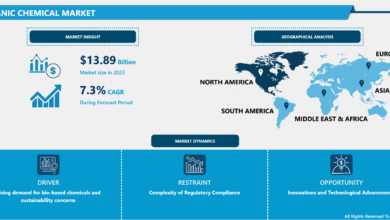Report finds New York has country’s second-worst judicial climate

(The Center Square) – A report released Tuesday by the American Tort Reform Foundation listed New York as having the country’s second-worst “judicial hellhole,” thanks to a wide variety of issues that threaten businesses and cost taxpayers money.
Only California supplanted New York, and the report said the margin between the two states was thin.
Among the reasons for New York’s high ranking include the number of Americans with Disability Act (ADA) website lawsuits and the number of class-action cases tied to food products. In both instances, New York led the nation.
“New York trial lawyers are now opting to sue first and discover later whether the defendants they’ve named might actually be involved in a specific case,” American Tort Reform Association President Tiger Joyce said in a statement. “This is yet another area by which companies are being unfairly dragged into court to suffer through costly and lengthy litigation.”
In 2020, there were 1,694 lawsuits filed claiming businesses were violating ADA. The report cites two 2017 rulings in which New York federal judges ruled websites were subject to the federal law requiring accessibility as the basis for the spike in cases.
In 2017, the ATRF found that there were only 814 such cases filed in the US. The following year, that number jumped to 2,258, with 1,564 filed in New York. Last year, 2,523 were filed nationwide, with New York’s caseload more than five times the amount of second-ranked Florida’s 302.
The report also found New York is home for far more food-related class-action lawsuits than other states, thanks to what it calls the “vague language” in the state’s consumer protection law, which allows plaintiffs to show that a product is “likely to mislead a reasonable consumer.”
Through June, 77 such cases were filed in New York, with more coming since. One, in particular, was filed in October in the US District Court for New York’s Southern District by a woman who filed suit against Kellogg Sales Co. over the amount of strawberries in a strawberry Pop Tart.
“The Product’s name, ‘Whole Grain Frosted Strawberry Toaster Pastries,’ is misleading because it includes ‘Strawberry,’ but does not include pears and apples, even though the fine print of the ingredient list reveals the presence of more of these fruits than strawberries,” the lawsuit states.
Further complicating matters, according to the report, is the Democratic-led legislature passed bills in this year’s session to expand liabilities instead of protecting businesses from them. That includes a bill to expand the False Claims Act.
State Sen. Liz Krueger, D-Manhattan, sponsored the bill saying in her justification statement that the 2013 state law included a loophole that gave exemptions for individuals and businesses that did not file tax returns.
“Due to this omission, such individuals and businesses are liable under the New York False Claims Act for knowingly filing false tax returns, but not liable for knowingly and illegally failing to file any tax returns at all,” she said.
The bill is on Gov. Kathy Hochul’s desk.
If Hochul were to sign the bill, the report said lawyers would look to target wealthy individuals instead of the most serious offenders.
“The net effect could well be for trial attorneys to seek to review the work of every accountant in New York who advises wealthy clients in search of a disputable tax position that could result in their next payday,” the report said.
The foundation said that New York residents pay a “tort tax” of $1,450 each as a result of the pervasive litigation. Passing laws to rein in litigious behavior would lead to a savings of $28 billion for the state and create $53 billion in new annual economic activity.
Tom Stebbins, the executive director for the Lawsuit Reform Alliance of New York, said in a statement that lawmakers should look to pass reforms that make it more difficult to file questionable lawsuits that end up costing consumers more money.
“They can begin by reining in unregulated lawsuit lending and litigation finance,” he said. “The civil justice system should not be a profit center for avaricious law firms or predatory lenders.”
Disclaimer: This content is distributed by The Center Square


